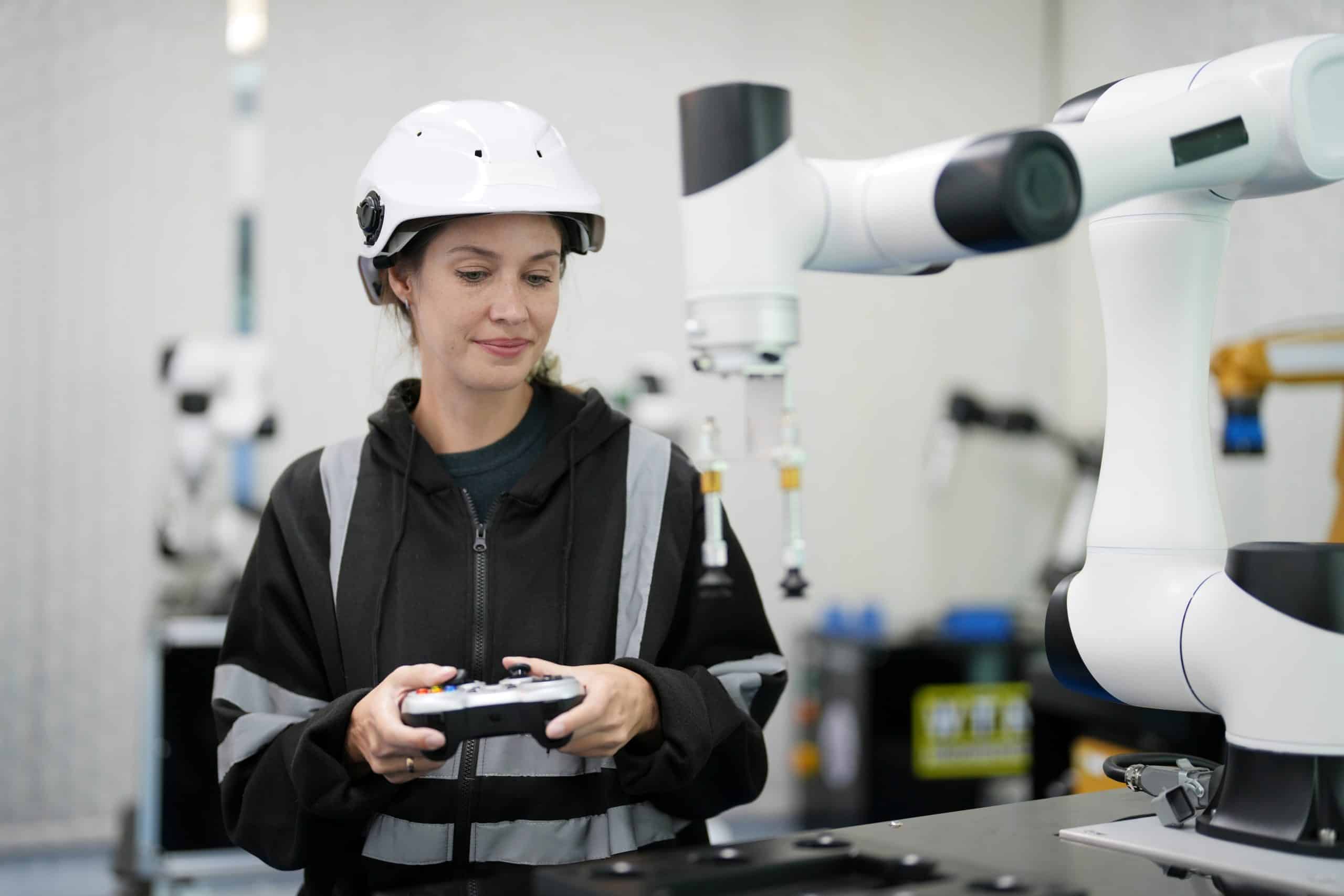Music, in its various forms, has been a critical part of human history. It serves as a common denominator across cultures, a communicator of emotions and ideas, and a source of pleasure and catharsis. The traditional process of musical composition involves human composers painstakingly crafting every note and harmony. The advent of technology has dramatically impacted this process, with computer-generated music becoming more prevalent. Recently, the field of artificial intelligence (AI) has started to contribute to this sphere. AI is being used to create classical music compositions, a task traditionally left to human musicians. This development raises several questions: How does AI generate music? What is the potential future of this technology in the music industry? We will explore these topics in this article.
How AI Generates Classical Music
Artificial Intelligence has made its way into various sectors, and the music industry is no exception. To understand how AI generates classical music, it is important to grasp how machine learning, a subset of AI, works.
Sujet a lire : What’s the Future of Biometric E-Passports for UK’s Border Security?
Machine learning algorithms learn from data and can make decisions or predictions based on it. AI music generators like AIVA (Artificial Intelligence Virtual Artist) use these algorithms to analyze thousands of classical music scores from various composers. By learning the patterns and structures in this data, the AI can create its own unique compositions in a similar style.
AIVA, for instance, analyzes the works of classical composers such as Mozart and Beethoven. It learns from the data, identifies common patterns and structures, and uses this to generate its own music. What it creates is not a simple rehashing of old tunes, but a unique composition that mimics the complexity and beauty of classical music.
Sujet a lire : What Are the Latest Developments in AI for Real-Time Traffic Management in Smart Cities?
The Potential of AI in the Music Industry
The potential of AI in the music industry is immense. As technology continues to evolve, the capabilities of AI in creating music will likely expand.
One advantage of using AI for music composition is the speed and efficiency it brings to the process. Composing music traditionally can take weeks, months, or even years. AI, however, can generate compositions in a matter of minutes. This efficiency could provide a significant boost to the music industry, where the demand for fresh content is always high.
Moreover, AI could democratize the process of music creation. With AI music generators, anyone, regardless of musical expertise, can create their own classical music composition. This could lead to a proliferation of new music, as more people get the opportunity to express their creativity through this medium.
However, this does not mean that human composers will become redundant. AI music generators are tools that can aid and enhance human creativity, not replace it. They can provide inspiration, assist in the composition process, and even handle the more tedious aspects of it, allowing composers to focus more on the creative aspects.
How AI is Changing Music Education and Performance
The use of technology in music education and performance is not new; computer-generated music and digital instruments have long been a part of these fields. However, AI is bringing about a new set of changes.
In music education, AI can be used as a teaching tool. For example, AI music generators can create a variety of compositions for students to study and learn from. They could also provide immediate and accurate feedback, helping students improve their performance.
In terms of performance, AI can contribute to creating more complex and sophisticated compositions. With AI assistance, musicians can explore new musical structures and genres. These new compositions can provide unique experiences for listeners, expanding the possibilities of what music can communicate and evoke.
The Future of AI in Classical Music
While the use of AI in classical music is still in its relatively early stages, the future holds much promise. As AI technology continues to develop, its contributions to the music industry are likely to increase.
One potential development is the emergence of AI as a collaborator in the composition process. Instead of merely generating music based on data, AI could interact with human composers, providing suggestions and ideas.
Another potential development is the creation of AI that can understand and respond to human emotions. This could revolutionize the process of music composition, allowing for more personalized and emotionally resonant pieces.
The use of AI in classical music has the potential to change the industry in profound ways. While it is impossible to predict the exact nature of these changes, it is clear that AI has a significant role to play in the future of music. However, regardless of the advancements in AI technology, the human touch in music will always remain irreplaceable. From the spark of creativity to the emotional resonance of a piece, music is a reflection of human experience, something that AI can aid in expressing, but never fully replicate.
AI and Music Education: A New Paradigm
Artificial Intelligence is not just altering the rules of music creation but also the fundamentals of music education. The introduction of AI in music classrooms can provide students with a unique and enriched learning experience. AI tools, like AIVA, can serve as teaching aids, enhancing the educational journey for both teachers and students.
One key advantage of AI in music education is its ability to generate compositions on demand. Teachers can use these AI-created pieces as resources for imparting music theory. Students can study these compositions, understanding the structures and patterns behind classical music. This could provide a more dynamic and interactive way to learn, going beyond traditional textbook methods.
Moreover, AI can provide instant and precise feedback, a crucial aspect of learning. For example, AI tools can analyze student performances, pointing out inaccuracies and suggesting improvements. This could greatly speed up the learning process and improve the quality of education.
AI music generators can also inspire students to create their own music. By interacting with the AI, students can explore different structures and patterns, igniting their creativity. This could lead to a more inclusive and widespread culture of music creation, with more people able to express themselves through this medium.
Ethics and AI: Considerations in the Music Industry
As AI continues to permeate the music industry, ethical considerations are arising about its use. Questions are being asked about the ownership of AI-generated music, the role of human musicians, and the potential threat to the uniqueness of human creativity.
One major debate is over the copyright of AI-generated music. Since the music is produced by a machine learning model and not a human, who should own the rights to it? Some argue that the rights should belong to the creators of the AI, while others believe it should be considered public domain. This is an area that requires legal clarity.
Another concern is the diminishing role of human composers in music creation. While AI can certainly aid the creation process, there is a fear that it could overshadow human creativity. There is a need to strike a balance between utilizing AI to enhance music creation and preserving the irreplaceable touch of human creativity.
Lastly, there are worries about the homogenization of music. AI uses data from existing music to generate compositions. This could potentially lead to a lack of originality and diversity in music, as AI tends to replicate patterns it learns from data. This highlights the importance of human intervention in music creation, to ensure variety and innovation.
Conclusion: AI and the Evolution of Classical Music
As technology continues to progress, the integration of AI in the music industry is set to deepen. AI’s ability to analyze large volumes of data and generate compositions in a fraction of the time required by human composers offers a new dimension to music creation and education. However, it also triggers ethical considerations that require thoughtful analysis and regulation.
The potential of AI to serve as a collaborator with human composers opens up exciting possibilities for the future of music. This could lead to the creation of music that is not only technically perfect but also emotionally resonant and unique.
While AI’s role in the music industry is undoubtedly growing, the importance of human musicians and their unique creativity remains paramount. The true beauty of music lies in its ability to express the human experience, something that machines, no matter how advanced, cannot fully replicate.
In conclusion, AI is not here to replace human musicians but to augment and enhance the music creation process. It provides tools for musicians to explore new creative avenues and for educators to enrich their teaching methods. As we navigate this new era of AI and music, the key would be to harmoniously blend the capabilities of AI with the creativity of human composers, ensuring the preservation and evolution of the soulful art form that is classical music.






